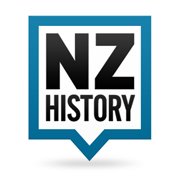Episodes
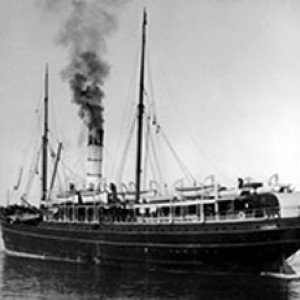
Thursday Oct 04, 2018
The tragedy of the SS Talune and the 1918 influenza pandemic
Thursday Oct 04, 2018
Thursday Oct 04, 2018
In October 1918 the SS Talune was permitted to leave Auckland bound for Fiji and Polynesia, even though the ship's master knew that influenza was rife in the city and that there were sick on board ship when it left port. The state of the ship was also known prior to its arrival in many of its destination ports.
Within eight weeks of berthing at Fiji, Western Samoa and Tonga, at least 5% of Fijians, 7% of Tongans and one-quarter of Western Samoa's population had died of influenza.
In this Public History talk, qualified nurse and communicable diseases specialist Ryan McLane discusses how and why this tragedy occurred.
Ryan McLane has worked in a variety of public health roles over the past two decades, including time spent leading a clinical team in an Ebola Treatment Unit in Sierra Leone and managing a public health unit in the Alaskan arctic. During his seven years in New Zealand he has worked with the Ministry of Health, the Southern District Health Board and the University of Otago Medical School. His PhD with the University of Otago focused upon the 1918 influenza pandemic in the Samoas, Tonga, and Fiji.
These monthly Public History Talks are a collaboration between the National Library of New Zealand https://natlib.govt.nz/ and the Ministry for Culture and Heritage https://mch.govt.nz/.
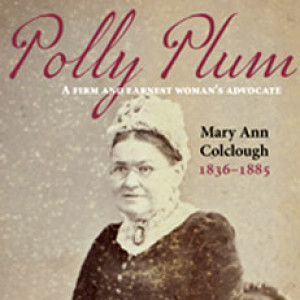
Thursday Aug 02, 2018
Polly Plum and the first wave of feminism
Thursday Aug 02, 2018
Thursday Aug 02, 2018
As we celebrate 125 years of women’s suffrage, it's time to re-evaluate Polly Plum, once described as ‘a highly controversial public figure for a few years only’.
In this Public History Talk, feminist historian and author Jenny Coleman shares some of the lesser-known parts of social reformer Mary Ann Colclough's (AKA Polly Plum) life, and her role in the “first wave” of feminism in New Zealand. She was also a leading educationalist and one of the earliest published female authors in New Zealand.
These monthly Public History Talks are a collaboration between the National Library of New Zealand https://natlib.govt.nz/ and the Ministry for Culture and Heritage https://mch.govt.nz/.
Recorded live at the National Library of New Zealand, 1 August 2018.
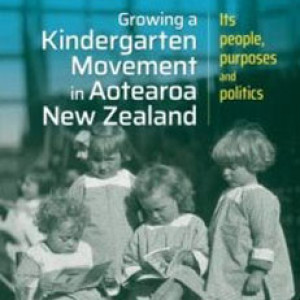
Wednesday Jul 04, 2018
‘Researching kindergarten: the endeavours of women for the play of children’
Wednesday Jul 04, 2018
Wednesday Jul 04, 2018
In this Public History Talk about an iconic kiwi institution, two historians of early childhood education present the outline of their new book, Growing a Kindergarten Movement in Aotearoa New Zealand.
Emeritus Professor at the University of Otago Helen May, and retired senior lecturer Kerry Bethell, Massey Universtiy, have published and presented nationally and internationally on the subject of early childhood education.
This book is their first joint publication which saw them travelling extensively around historical kindergarten sites and delving into archives, allowing them to gather new sources for their research.
These monthly Public History Talks are a collaboration between the National Library of New Zealand https://natlib.govt.nz/ and the Ministry for Culture and Heritage https://mch.govt.nz/
Recorded live at the National Library of New Zealand, 4 July 2018.
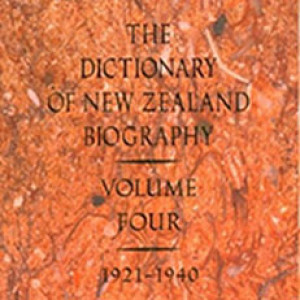
Wednesday Jun 06, 2018
‘The Dictionary of New Zealand Biography, redux’
Wednesday Jun 06, 2018
Wednesday Jun 06, 2018
The Dictionary of New Zealand Biography was originally published in five print volumes between 1990 and 2000. It comprised 3000 biographical essays about a wide range of deceased New Zealanders who had come to prominence by 1960. The Dictionary went online in 2001. In 2010 it was merged with Te Ara: the Encyclopedia of New Zealand to form the single largest reference work on New Zealand's history and society https://teara.govt.nz/en/biographies
The combined Dictionary and Te Ara website is one of the largest works of scholarship ever undertaken in this country, and is unique in the world.
Since 2000 The Dictionary has been in hiatus, with the exception of a batch of 15 biographies that were published online in 2010-11. In 2017 the Ministry for Culture and Heritage decided to resume work on the Dictionary, and to publish a new batch of biographies online every year. The new programme commences with 20 new biographies of women which will be published in September this year to celebrate the 125th anniversary of women’s suffrage.
In this presentation, senior historian Tim Shoebridge - the Dictionary’s programme manager, will speak about the challenges posed and opportunities offered by this new chapter in the Dictionary’s life.
These monthly Public History Talks are a collaboration between the National Library of New Zealand https://natlib.govt.nz/ and the Ministry for Culture and Heritage https://mch.govt.nz/
Recorded live at the National Library of New Zealand, 6 June 2018.
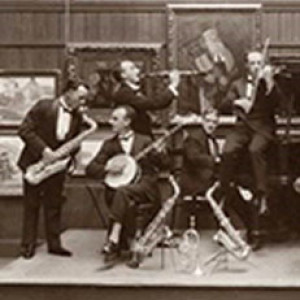
Wednesday May 02, 2018
Jazzy Nerves, Aching Feet, and Foxtrots: New Zealand’s Jazz Age
Wednesday May 02, 2018
Wednesday May 02, 2018
Douglas Lilburn Research Fellow, Dr Aleisha Ward explores some of the many facets of ‘jazz’ in New Zealand’s Jazz Age. The image of 1920s New Zealand is frequently one of a quiet, staid society that ‘closed at 5’. Contrary to belief however, New Zealand had a flourishing, vibrant, urban landscape and a burgeoning jazz scene.
Dr Aleisha Ward is the 2017 Douglas Lilburn Research Fellow and a recipient of a 2018 Ministry for Culture and Heritage New Zealand History Research Trust Fund award investigating the Jazz Age in New Zealand.
Aleisha is an award-winning writer, freelance editor, and lecturer in music history. She writes about jazz in New Zealand for a number of publications including audioculture.co.nz and New Zealand Musician and on her own blog NZ Jazz https://nzjazz.wordpress.com/shameless-self-promotion/
These monthly Public History Talks are a collaboration between the National Library of New Zealand and the Ministry for Culture and Heritage.
Recorded at the National Library of New Zealand, 2 May 2018.

Wednesday Apr 11, 2018
How does a city make a writer?
Wednesday Apr 11, 2018
Wednesday Apr 11, 2018
Redmer Yska is a Wellington based writer and historian, and is author to many New Zealand history works.
Redmer presents his latest work 'A Strange Beautiful Excitement, Katherine Mansfield’s Wellington, 1888-1903’, and discusses a new connection between Mansfield's family and Women's Suffrage. He tried, as he put it, to ‘catch a glimpse of her in the open air: striding through the gale, long hair flying’.
His research into Thorndon’s festering, deadly surroundings also led him to propose a new theory for the family’s 1893 move to Karori.
Public History Talks are a collaboration between the National Library of New Zealand and the Ministry for Culture and Heritage.
Recorded at the National Library of New Zealand, 7 March 2018.
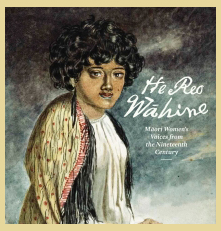
Wednesday Apr 04, 2018
Māori Women, Politics and Petitions in the 19th Century
Wednesday Apr 04, 2018
Wednesday Apr 04, 2018
Dr Angela Wanhalla teaches in the Department of History and Art History at the University of Otago, Dunedin. This presentation draws upon her most recent book, He Reo Wāhine: Māori Women’s Voices from the Nineteenth Century, co-authored with Māori-language scholar and historian, Lachy Paterson.
Collective petitions have helped force significant political and social reform in New Zealand. This talk introduces women petitioners and their concerns and argues that petitions are an important body of Māori writing that can offer insight into Māori women’s experiences of the colonial era.
These monthly Public History Talks are a collaboration between the National Library of New Zealand and the Ministry for Culture and Heritage.
Recorded at the National Library of New Zealand, 4 April 2018.
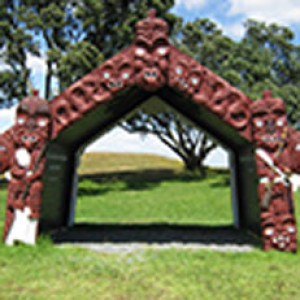
Wednesday Nov 01, 2017
The Great War for New Zealand
Wednesday Nov 01, 2017
Wednesday Nov 01, 2017
The Great War for New Zealand tells the story of the defining conflict in New Zealand history. War in the Waikato in 1863-64 shaped the nation in all kinds of ways, setting back Māori and Pākehā relations by several generations, marking an end to any hopes of meaningful partnership and allowing the government to begin to assert the kind of real control over the country that had eluded it since 1840. Spanning nearly two centuries from first contacts in the Waikato in the early nineteenth century through to settlement and apology in 1995, Vincent O’Malley’s book focuses on the human impact of the war, its origins and aftermath.
In this presentation, Vincent O’Malley reflects on the book’s key messages and its reception, just over a year after publication, and following the inaugural national day of commemoration for the New Zealand Wars. Has the call for New Zealanders to own their history, warts and all, been heeded?
Vincent O’Malley is a founding partner of HistoryWorks, a Wellington consultancy specialising in Treaty of Waitangi research, and is the author of many books on New Zealand history.
Recorded at the National Library of New Zealand, 1 November 2017

Wednesday Oct 04, 2017
Counting redcoats: Who were the imperial soldiers serving in New Zealand in the 1860s?
Wednesday Oct 04, 2017
Wednesday Oct 04, 2017
In this episode, Charlotte Macdonald and Rebecca Lenihan will discuss the development of a database of men serving in the imperial regiments in New Zealand, the nature of the ‘big data’ generated by the War Office, issues, limitations and possibilities to date, and goals for the database’s continuing development, along with some preliminary analysis. An initial release of the database is planned ahead of Rā Maumahara – the National Day of Commemoration on 28 October.
At least 12,000 imperial soldiers served in New Zealand in the wars of the 1860s. Who were the faces behind the uniforms serving Queen and government in this pivotal moment in New Zealand’s history? Where did the soldiers come from? Where did they go to? Many men had served in the Crimea, India or Australia. Some women and children also travelled with the regiments. What did they bring to New Zealand? And how might the wars on these soils be understood within the broader history of the British Empire in the mid-nineteenth century?
Professor Macdonald is Professor of History at Victoria University of Wellington Te Whare Wānanga o te Ūpoko o Te Ika a Maui.
Dr Lenihan is a post-doctoral fellow at Victoria University of Wellington Te Whare Wānanga o te Ūpoko o Te Ika a Maui, working with Charlotte Macdonald on the Soldiers of Empire project. She is the author of From Alba to Aotearoa: Profiling New Zealand’s Scots 1840-1920 (Otago University Press, 2015).
Recorded at the National Library of New Zealand, 4 October 2017.
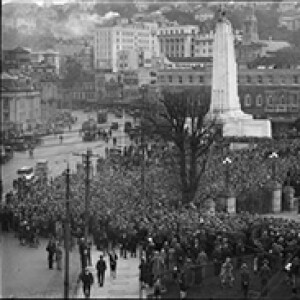
Wednesday Sep 06, 2017
The Broken Decade: 1928 - 39 by Malcom McKinnon
Wednesday Sep 06, 2017
Wednesday Sep 06, 2017
In this presentation, Malcolm McKinnon considers the significance of the year 1932 in New Zealand’s history. Keith Sinclair famously described the disturbances of that year and the government’s harsh response as marking New Zealand’s nadir. But the disturbances also prompted the government to abandon its austerity policy, although this was hard to pick at the time, and a political impasse about the way forward stymied recovery
Malcolm is a Wellington historian. His study The Broken Decade: Prosperity, depression and recovery in New Zealand, 1928-39, was published by Otago University Press in 2016.
These public history talks are a collaboration between the National Library of New Zealand and the Ministry for Culture and Heritage and are recorded monthly, live at the National Library of New Zealand.

Thursday Aug 03, 2017
Past Caring? Gender, Work and Emotion - A talk by Professor Barbara Brookes
Thursday Aug 03, 2017
Thursday Aug 03, 2017
How do we write a history of caring? This became a central question for Barbara Brookes, Professor of History at the University of Otago in writing 'A History of New Zealand Women'.
There have been major transitions in the locus of care over time. In the early twentieth century, for example, unmarried daughters might be expected to care for their parents in old age. In the mid-twentieth century, married women with children were expected to care for them. The care of children and the elderly, expected in the past to be the responsibility of families and to take place in family homes, or benevolent or church institutions, might now take place in a commercial context. In the twenty-first century, such caring – both for the elderly and the young – may be part of the market economy. This talk will consider the changing landscapes of care and their implications in the twenty-first century.
Recorded at the National Library of New Zealand, 2 August 2017.
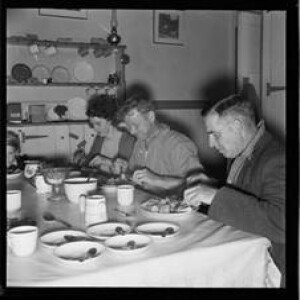
Wednesday Jul 12, 2017
Hearth and Home: Reconstructing the Rural Kitchen, c1840–1940’
Wednesday Jul 12, 2017
Wednesday Jul 12, 2017
How do we capture the flurry of activity, the frenetic movement of people and goods, the routines and ruptures that shape individuals’ everyday experiences and the spaces in which they live? How do we write a history of domestic space, and what are the benefits of such an endeavour for the social or cultural historian? In this talk, Dr Katie Cooper will address these questions offering a peek through the window of New Zealand’s rural kitchens.
Dr Cooper is curator of colonial histories at the Museum of New Zealand Te Papa Tongarewa. Her doctoral research, completed in 2016, examined the history of rural New Zealand to 1940, focusing on rural food ways and the kitchen as a functional and social space in rural homes.
Recorded at the National Library of New Zealand, 1 July 2017.
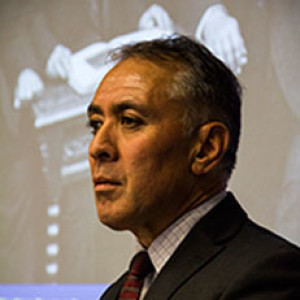
Thursday Jun 08, 2017
The Māori War Effort at Home and Abroad 1917
Thursday Jun 08, 2017
Thursday Jun 08, 2017
One hundred years ago in June 1917, the New Zealand Pioneer Battalion was toiling in the war torn environment around Messines in Belgium. The Pioneers had over a year’s experience as a mixed-race battalion (i.e. Maori, Pakeha and Pacific Islanders) and before that as the Maori Contingent and Otago Mounted Rifles Regiment at Gallipoli.
In this talk - Historian Monty Soutar, (Ngāti Porou, Ngāti Awa, Ngai Tai) presents a recently delivered paper from the Myriad Faces of War Conference at Te Papa.
It invites the audience to contemplate the development of three processes and their results during 1917, so that they may understand the Maori situation after the First World War. It also includes waiata by Tā Apirana Ngata sung live by Hine Parata Walker, Te Mihinga Tukariri and Te Aniwa Nelson.
Recorded at the National Library of New Zealand, 7 June 2017.
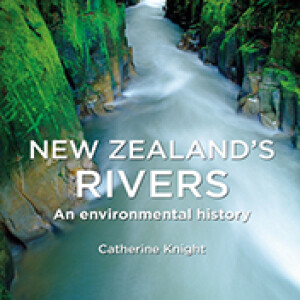
Monday May 22, 2017
New Zealand’s Rivers: can we learn from history?
Monday May 22, 2017
Monday May 22, 2017
The government recently announced a proposal to make more of our rivers ‘swimmable' by 2040 – it has attracted significant controversy, demonstrating the level of concern about the state of our rivers among ordinary New Zealanders. In this talk, Catherine Knight, author of New Zealand’s Rivers: An environmental history, will provide important context to this debate by exploring some of our complex – and often conflicted – history with rivers since humans first settled in Aotearoa New Zealand. She will argue that knowing our history is an important foundation to forging a better future, both in terms of our environment and our socioeconomic wellbeing.
Catherine is an environmental historian. New Zealand’s Rivers: An environmental history (Canterbury University Press, 2016) has been longlisted for the Ockham New Zealand Book Awards 2017 and was selected as one of the Listener’s Best Books for 2016. Her previous book, Ravaged Beauty: An environmental history of the Manawatu (Dunmore Press, 2014), won the J.M. Sherrard major award for excellence in regional and local history, and Palmerston North Heritage Trust’s inaugural award for the best work of history relating to the Manawatu. Catherine is a policy and communications consultant and lives with her family on a small farmlet in the Manawatu, where they are restoring the totara forest.
Introduction by Chief Historian Neil Atkinson. Recorded at the National Library of New Zealand, 3 April 2017.
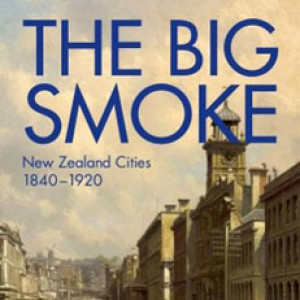
Wednesday Apr 19, 2017
Reflections on the Big Smoke
Wednesday Apr 19, 2017
Wednesday Apr 19, 2017
In this presentation Ben Schrader offers some reflections on the writing of his recent book The Big Smoke: New Zealand Cities, 1840-1920 (Bridget Williams Books, Wellington, 2016).
Why did he write the book and how did he go about it? What were the challenges and rewards of writing a broad story in a narrowly researched field? He then reveals some of the most important findings from the project and suggests ways they increase our understanding of New Zealand’s past. Finally, he ponders how the work might shape future research. Might, for example, his focus on the lived experience of city dwellers suggest social history is making a long-awaited comeback?
Recorded at the National Library of New Zealand, 5 April 2017.
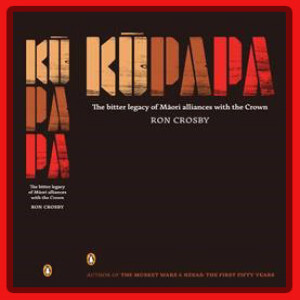
Monday Dec 14, 2015
KŪPAPA - the bitter legacy of Māori alliances with the Crown
Monday Dec 14, 2015
Monday Dec 14, 2015
The Treaty of Waitangi struck a bargain between two parties - the Crown and Māori. Its promises of security however, were followed from 1845 to 1872 by a series of volatile and bloody conflicts commonly known as the New Zealand Wars. Many people believe that these wars were fought solely between the Crown and Maori, when the reality is Maori aligned with both sides, resulting in three participants from differing viewpoints.
In this episode, lawyer and writer Ron Crosby discusses his most recent book, Kūpapa.
Introduction by Chief Historian Neil Atkinson. Recorded at the Ministry for Culture and Heritage, 7 October 2015.
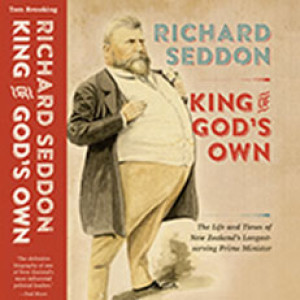
Wednesday Sep 16, 2015
Richard Seddon: King of God’s Own
Wednesday Sep 16, 2015
Wednesday Sep 16, 2015
Tom Brooking is Professor of History at the University of Otago. He specialises in New Zealand rural and environmental history, political history and historical links between New Zealand and Scotland. He is an author, co author and biographer of numerous books and publications, including the 2014 biography: Richard Seddon King of God's Own.
Although he was no saint Seddon was a far more complex and multi-faceted character than the often rather one-dimensional revisionist portraits within our historical literature. In this presentation, Tom Brooking will attempt to explain how he tried to challenge this increasingly orthodox view by attempting to understand Seddon according to the values of his own times rather than condemning him from a comfortable, presentist distance.
Introduction by Chief Historian Neil Atkinson. Recorded at the Ministry for Culture and Heritage, 2 September 2015.

Thursday Aug 06, 2015
Dr Steven Loveridge: New Zealand Society at War
Thursday Aug 06, 2015
Thursday Aug 06, 2015
Steven Loveridge holds a PhD in history from Victoria University of Wellington and has researched, taught and written on various aspects of the First World War. This talk explores the dynamics of the mobilisation process and considers what it might add to our comprehension of wartime New Zealand.
Introduction by Senior Historian Gavin McLean, and recorded at the Ministry for Culture and Heritage, 6 August 2015.

Thursday Jul 02, 2015
Dr Grant Morris: ’Legal Villain’
Thursday Jul 02, 2015
Thursday Jul 02, 2015
Dr Grant Morris is a Senior Lecturer in Law at Victoria University of Wellington. In this podcast he explores James Prendergast, the most infamous figure in New Zealand’s legal history. Known mainly for his condemnation of the Treaty of Waitangi as “a simple nullity” in 1877, Prendergast was a highly respected lawyer and judge and his good reputation remained intact until the 1980s, when the Treaty of Waitangi finally returned to the centre of New Zealand political life. The more the Treaty has been celebrated, the more Prendergast has been condemned. Who was this legal villain? Was he really a villain at all?
Introduciton by Chief Historian Neil Atkinson, and recorded at the Ministry for Culture and Heritage, 1 July 2015.
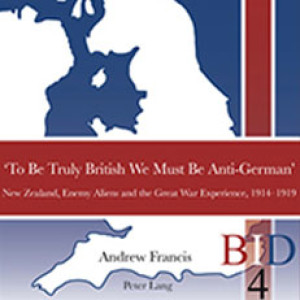
Thursday Jun 04, 2015
Andrew Francis: Enemy aliens and the New Zealand experience
Thursday Jun 04, 2015
Thursday Jun 04, 2015
This presentation by Andrew Francis discusses a still under-researched aspect of New Zealand’s war on the home front. It assesses the government, press and public’s conduct interwoven with Germans settlers’ wartime experiences. It considers the government’s task in attempting to safeguard the dominion’s security while remaining fair and just to New Zealand’s German communities; it analyses the role of the press, in particular those who fostered an increasingly hostile anti-German spirit; and it discusses the extent to which the public’s reaction to the ‘enemy in our midst’ was both a pseudo-patriotic response to wartime conditions and the culmination of an anti-foreigner campaign developed throughout the Victorian and Edwardian eras.
Introduction by Imelda Bargas, Senior Historian at the Ministry for Culture and Heritage. Recorded at the Ministry for Culture and Heritage, 3 June 2015.

